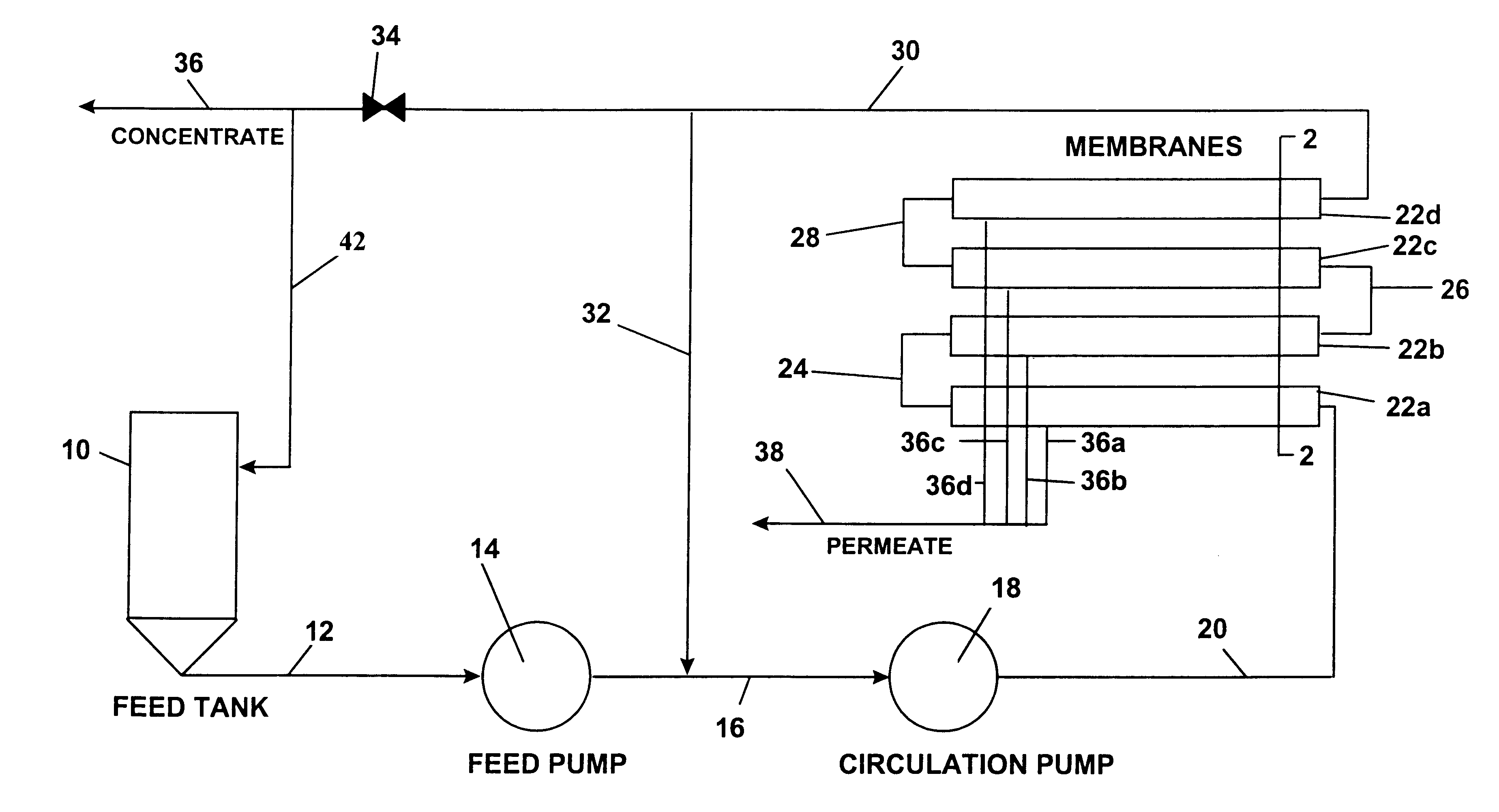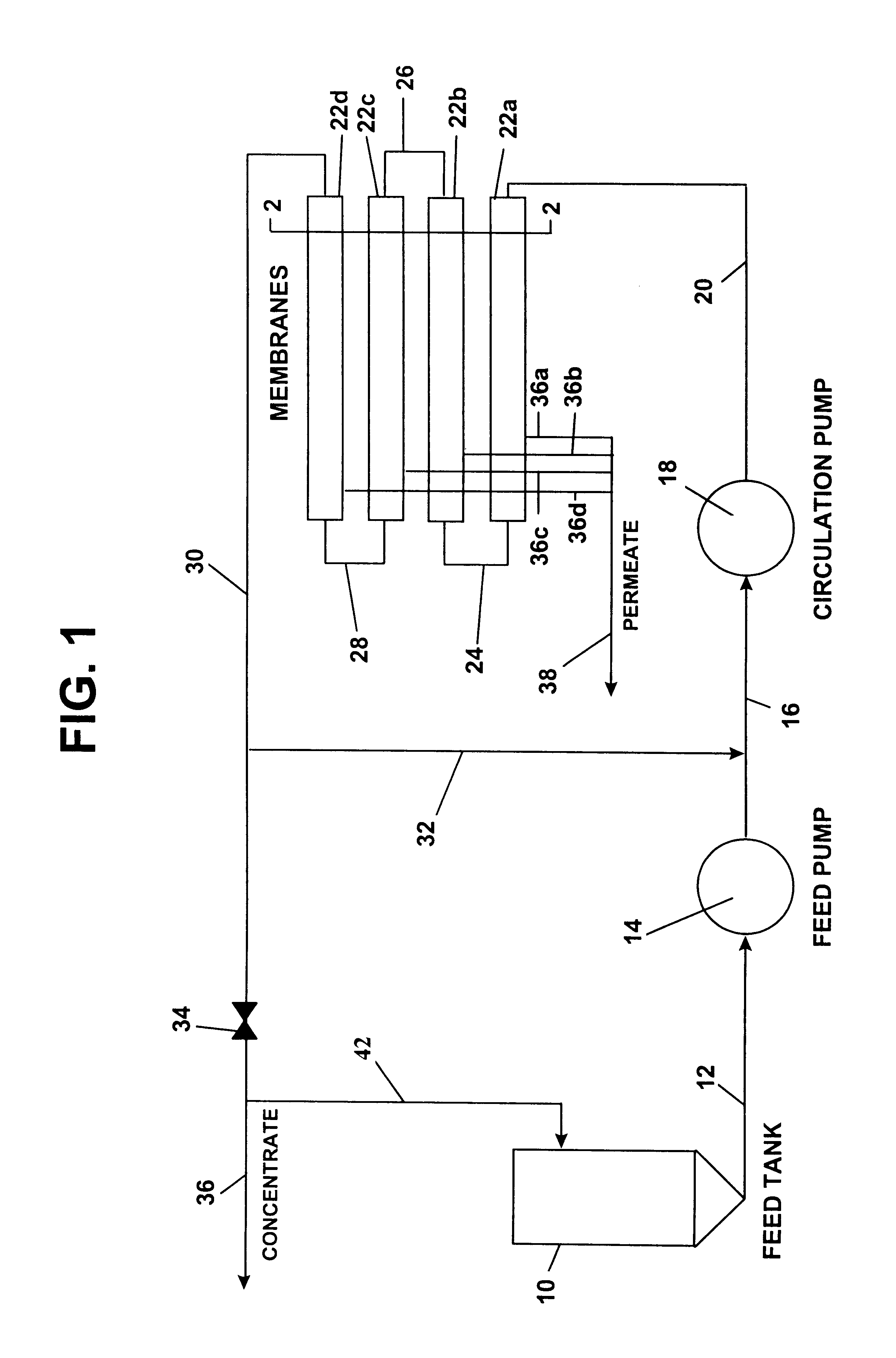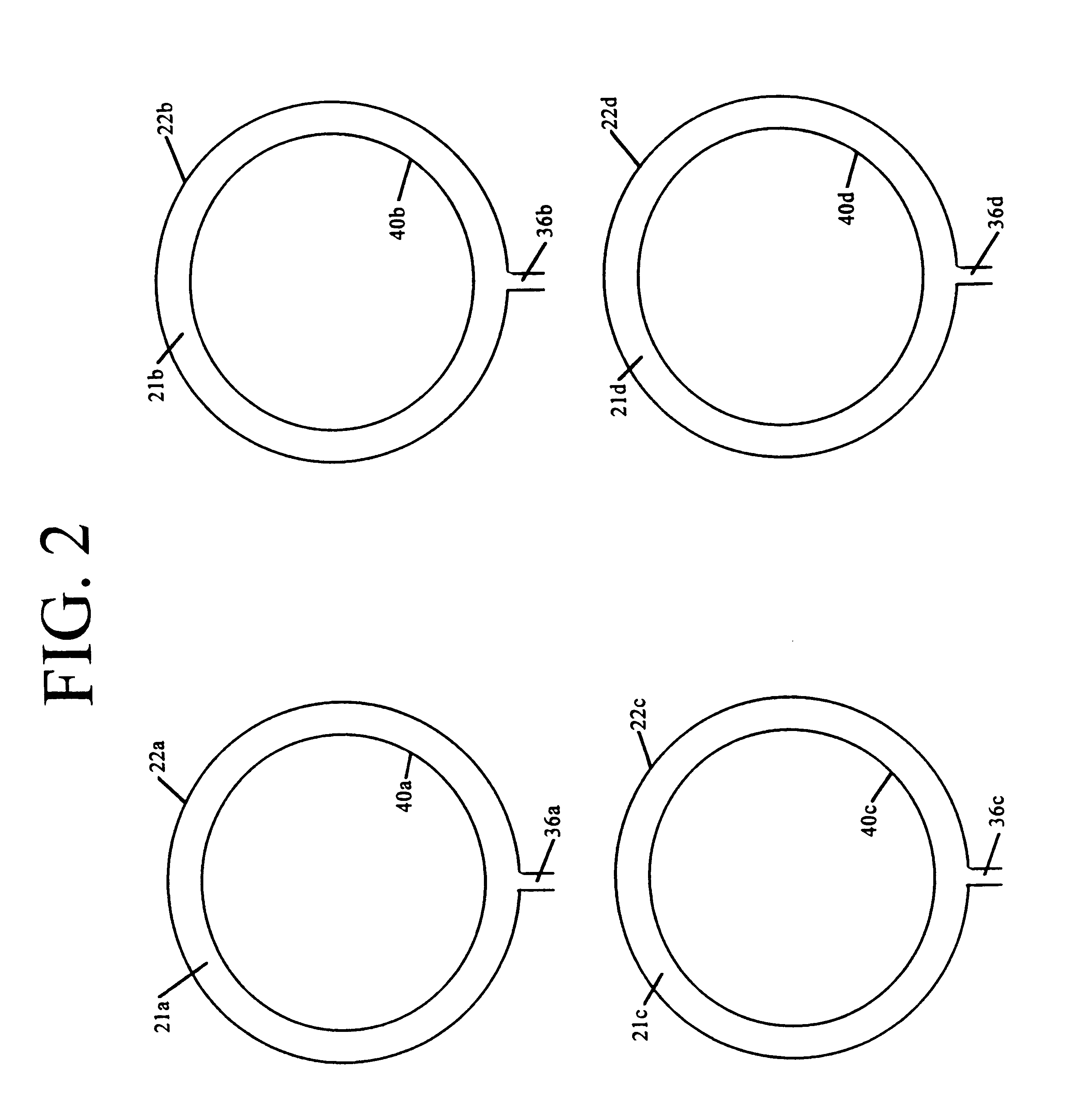Apparatus and process for the separation of liquids and solids
a technology of apparatus and solids, applied in the separation process, multi-stage water/sewage treatment, liquid displacement, etc., can solve the problem of contaminated hydrocarbon streams with particulate solids
- Summary
- Abstract
- Description
- Claims
- Application Information
AI Technical Summary
Benefits of technology
Problems solved by technology
Method used
Image
Examples
Embodiment Construction
The source feed was derived from a hydrocarbon vapor recovery system used to purify vapor from a drilling mud remediation in which diesel boiling range material used as a component of the drilling mud. The source hydrocarbon feed had the characteristics shown in the TABLE.
TABLE Hydrocarbons 85 Vol. % Water 5 Vol. % Solids 10 Vol. % Particle size range .1 to 20 microns
In an apparatus arranged similarly to that illustrated in FIG. 1, the source feed was pumped from the feed tank into the separation zone at a pressure of 25-300 psig, temperature of 150.degree. F. and at a rate of 5-10 gpm. Each section of the separation zone comprises four 5 ft. long, 1 / 2 inch ID stainless having titanium dioxide internal coating and positioned centrally as shown in FIG. 3 and sealed inside a 5 ft. long, 2 1 / 2 ID stainless steel pipe. A portion of the solid concentrate was recycled to the feed line, as required, to maintain the system velocity.
PUM
| Property | Measurement | Unit |
|---|---|---|
| pore size | aaaaa | aaaaa |
| pore size | aaaaa | aaaaa |
| pore size | aaaaa | aaaaa |
Abstract
Description
Claims
Application Information
 Login to View More
Login to View More - R&D
- Intellectual Property
- Life Sciences
- Materials
- Tech Scout
- Unparalleled Data Quality
- Higher Quality Content
- 60% Fewer Hallucinations
Browse by: Latest US Patents, China's latest patents, Technical Efficacy Thesaurus, Application Domain, Technology Topic, Popular Technical Reports.
© 2025 PatSnap. All rights reserved.Legal|Privacy policy|Modern Slavery Act Transparency Statement|Sitemap|About US| Contact US: help@patsnap.com



